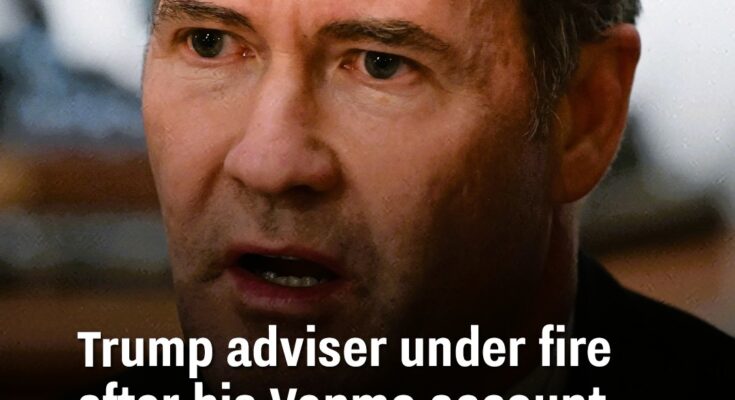The Trump administration finds itself in more hot water, this time as a senior adviser is accused of leaving personal information open to the public and potentially exposing contacts to a security risk.
Just days after Michael Waltz seemingly invited The Atlantic editor-in-chief Jeffrey Goldberg to a Signal group chat that revealed the government’s plans to launch a series of airstrikes on Yemen’s Houthi rebels, Trump’s National Security Adviser is back in the news.
As reported by Wired, Waltz was among several high-ranking officials who left their Venmo open to the public. The outlet claims that the account seemingly linked to Waltz reveals ‘hundreds’ of his personal and professional associates. This includes journalists, military officers, lobbyists, and more. Experts say that this information could be exploited if it fell into the hands of a foreign intelligence service or other bad actors.

Waltz is potentially in hot water yet again (Bloomberg / Contributor / Getty)
The site maintains that some of the accounts connected to the ‘Michael Waltz’ one that carries a profile picture of him include other Venmo accounts that appear to belong to White House Chief of Staff Susie Wiles and the United States National Security Council’s Walker Barrett.
It’s especially prevalent considering both were included in the Signal chat.
Although the White House didn’t respond to Wired’s findings, the accounts that it linked to Waltz and Wiles have now gone private.
Speaking to Fox News’ Laura Ingraham in the aftermath of the ‘Houthi PC small group’ leaks, Waltz took ‘full responsibility’ for the Signal incident and told the outlet: “It’s embarrassing, yes. We’re going to get to the bottom of it.”
Saying that he’d been consulting with Elon Musk when asked about finding out who was responsible for adding Goldberg to the group, Waltz added: “We’ve got the best technical minds looking at how this happened. A staffer wasn’t responsible. I take full responsibility. I built the group. My job is to make sure everything is coordinated.”
It’s a tense time for Waltz, especially following a reminder from the Pentagon that Signal shouldn’t be used “to process or store nonpublic unclassified information.”
Wired is said to have reviewed the public data available from the Venmo accounts that are supposedly associated with these high-up officials, claiming that the Signal leak wasn’t an ‘isolated mistake’.
It’s referred to as “a broader pattern of what national security experts describe as reckless behavior by some of the most powerful people in the US government.”
The account listed under Waltz’s name had a friend list of 328 people that included Barrett (who was Waltz’s former Deputy Chief of Staff) and Micah Thomas Ketchel (a senior adviser to Waltz and President Donald Trump).
Aside from on-air personalities like Fox News’ Bret Baier, the friend list seems to include Texas representative Dan Crenshaw, the former mayor of Deltona, Florida, and Christian Brose, the president of defense giant Anduril Industries.
Even though none of their Venmo transactions were visible, Venmo spokesperson Erin Mackey reiterated: “We take our customers’ privacy seriously, which is why we let customers choose their privacy settings on Venmo for both their individual payments and friends lists—and we make it incredibly simple for customers to make these private if they choose to do so.”
More than the big names on the Waltz account’s Venmo, security experts explain how the details of civilians like doctors and real estate agents could be more at risk because they might be seen as ‘soft targets’ who can grant access to those up high.




